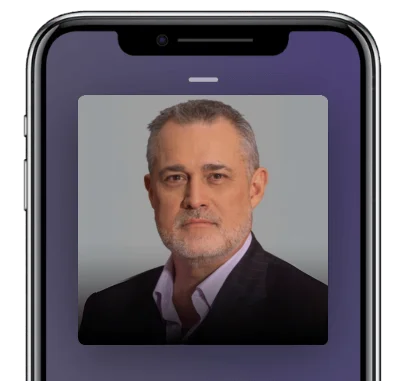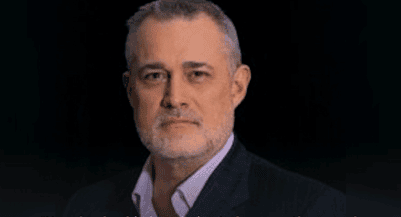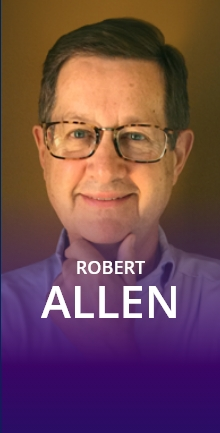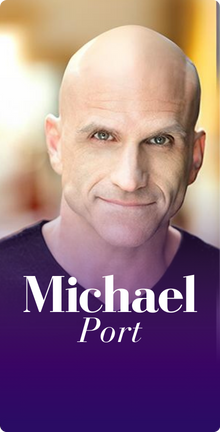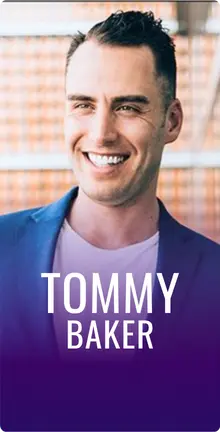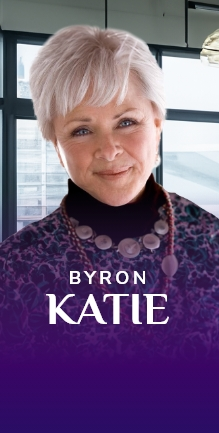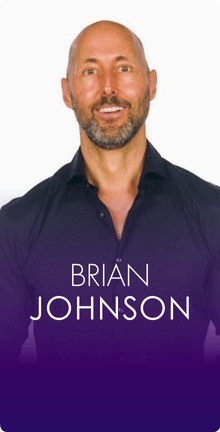In this Episode
- [00:39]Stephan introduces Jeffrey Hayzlett, a global business celebrity, best-selling author, Hall of Fame speaker, and the Chairman and CEO of C-Suite Network, home of the world’s most trusted network of C-Suite leaders.
- [04:53]Jeffrey talks about how they pivoted C-Suite Network through the pandemic last March 2020.
- [08:09]Jeffrey explains why you can only focus on one, either fame or fortune, as a thought leader.
- [13:11]Stephan and Jeffrey discuss Jeffrey being in the National Speakers Association Hall of Fame and how important it is to protect your confidence when you’re at that level.
- [17:24]Stephan shares what he learned from Michael Port in public speaking, where you are either a performer or a critic.
- [21:41]Jeffrey shares how he gives back to people through his business and in his personal life.
- [25:58]How to incorporate Jeffrey’s Three R’s; relevant, reach, reciprocity into your pivot strategy for the year 2021 during the pandemic?
- [29:53]Jeffrey talks about Tony Hsieh’s death and how he wished he could have done something to help prevent it from happening.
- [35:06]As a leader, what does it take to have that hero factor that can serve as the backbone of a successful business?
- [42:27]Visit C-Suite Network’s website at C-SuiteNetwork.com to learn more and be involved by joining in their events.
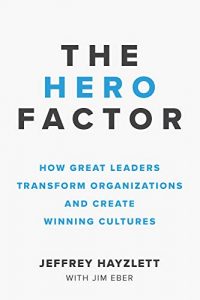
Jeffrey, it’s so great to have you on the show.
It’s good to be here. Thanks so much for having me.
So you were on Marketing Speak not too long ago. And we talked about generating PR, building authority, and celebrity status. That was a great episode. Here on Get Yourself Optimized, we’re going to talk about some different things like leadership and how to grow your business, up level, and adapt in changing times like what we’re in right now. Where would you like to start?
There’s a lot to start. Right now, I think for most people, if you haven’t realized that through COVID, the opportunity for you to move to digital. You’re up a creek without a paddle. Because today, days have become weeks, weeks have become months, months have become years. The speed at which we’re doing this, and I’m working seven days a week right now. And I finally took my first day off since March. It was just the other day on Sunday just to relax and chill. And I say take it off, and I still had an event Sunday night that we did on top of that. So it didn’t take it off. And I was on the phone for three hours if I think about it, but it wasn’t meant to be. I wasn’t in front of a computer the whole time, meaning just go, go, go, go. But what I think most people need to realize is the game that you’re in right now. It’s a race to get as digital as you can. And to get noticed as fast as you can in terms of being in front and center to the people.
What have you done to pivot in this way to get more digital and switch to online events and online meetings, and so forth? What are some of the big wins for 2020 for you?
No matter how much you do, it’s not enough. There are a lot of things I can improve.
First, I’d say I haven’t done enough, not enough. No matter how much you do, it’s not enough, meaning there are a lot of things I can improve. You and I talked about our SEO and everything else that we’re doing, and there are some aspects of it we suck at. Meaning we’re just not up to par, or we don’t do this, we don’t get everything checked off the way we’d like to. But there are other things that we do better than anyone else in terms of creating the content and getting the content out. So the pivoting that we had to do, most of our events, we did about 150 live face-to-face events. That was a massive part of our outreach, and it was a significant part of our programming and the delivery of the benefits in terms of the C-Suite Network’s power. All that came to a screaming stop on March the 13th. Boom. By March 16th, I said, “We have to run into the fire.” “What do you mean?” I said, “Well, listen, I’m not a doctor, I’m not a nurse, I can’t even sow a frickin mask. But what I can do is be a business first responder.” “What does that mean?” “We’re going to take this head-on, and we’re going to rush in as fast as we can.”
So we shifted. And so we moved all of our face-to-face events to digital events, still not knowing what the plan was going to be. Months later, we finally have it figured out; at least, we feel we have. During that entire time, we were running a deficit for several months because we had all these expenses for these live events and couldn’t walk away from that trying to negotiate as much as you can, but you still got contracts that you signed and so forth. And we’ll all remember those people when it comes back down again. Nonetheless, we finally were able to start turning good profits. Now the membership has increased, so we did an excellent job with that. But yeah, we had to pivot a lot like a lot of other people. Just like restaurants, restaurants got shut down. What do they do? They made foods that traveled well; instead of going to the restaurant and eat, they have the ambiance of the whole thing, where you just pick it up. There are different ways of being able to get around that. So we had to do a similar thing.
Hero leadership is a choice to be more than good, more than great, no matter the circumstances. Share on XWhat do you think your brand, C-Suite Network, is most known for these days?
I think it’s helping other people get through this and switching to the thing. It’s around what I call the three R’s. Are we relevant to each other? Can we help each other with reach? And then what’s the reciprocity? I think that’s the key that we have. Inside of that, then it’s about education, motivation, inspiration, and monetization if you get engaged. But if you don’t get engaged, you’re not going to see it. If you don’t come in, give, participate, and engage, then you won’t get the value out of it. And now, what did we do well? The other thing was the podcasting, and our TV content, all the content that we create for consumption has significantly increased, and not only just increased it, just the reach of that. We grew our podcast network by 127% on new shows, we grew listenership by 450%, and we grew episodes by 132%. That’s pretty impressive.
How many podcasts do you have on the network?
Over 250 podcasts now. And we’re on track to add 750 next year. Somebody said, “Oh, my gosh, how can you do that?” Well, there are 213,000 podcasts out there. We’re 1% of the entire podcast market right now in terms of listenership. We’ve done that well. So that’s pretty impressive. And then, if you take that with the advertising, we’re doing exceptionally well because our advertising for our podcast hosts has overtaken anything else we’ve got. So we’re selling a great deal of advertising and getting good repeat business with the people that we’re placing it for. Now, monetizing podcasts, that’s a hard thing to do. So, we’ve shown our hosts how to do that one. On top of it, we’ve shown how to make money, not just money advertising but also how to make money with your podcasts or use it for your good. That’s the key thing. So, when you’re looking at a B2B podcast, like with C-Suite Radio, you want the fame, you want the fortune, but you want the fortune. That’s what we find. So you have to increase your reach. You got to continue to do that. You got great content, but you also have to have great guests, as well.
Now, I recall you saying, maybe I’m wrong here, but I recall you saying that it’s either kind of pick fame or pick fortune because you’re not going to get both.
Either pick fame or pick fortune because you’re not going to get both.
Yeah, I’ve said that all the time. I was starting to use another word, instead of “fortune,” it’s more around engagement. But relevancy is a real key for you, in terms of being on that side of it to be good at what you do. I think that’s the most important thing. Fame or fortune, if you’re going for fame, your business model is going to be different. You’re just going to go out there and try to be as famous as you possibly can. And not care too much about how you monetize or the way you monetize. But if you’re going for fortune, you got to get real serious and understand it’s not about eyeballs and ears. It’s about hearts and minds. And when you figure in about hearts and minds, then your message changes a great deal. In terms of how you go about an approach, if your model is a thought leader, let’s just take your model as a thought leader; well, then you’re going to be taking pictures of your dinner and your lunch and tweeting them out or TikTok them or whatever it might be. But if you’re focused on fortune, then you’re going to look for engagement. You’re going to look for how I can be credible and relevant for the audience I want to reach. In doing so, you’re going to be more measured in how you do it. Now, by doing that, you’ll gain fame by doing an excellent job. And so that’s what we try to focus on. It’s more on that side.
That’s great. And I’m curious, are you on TikTok?
I’m not. I don’t think I am. I have never done a TikTok unless my team did it for me. But I am not personally on TikTok. I don’t have time for it. I’m on Instagram, but mostly I look at Instagram for cooking stuff because I love to cook. So I’m mostly on that to look at how other people are doing and different things along those lines. And I do some of it, but not much. I’m more of a Twitter and LinkedIn than anything.
How are you capturing hearts and minds and revealing light out in the world?
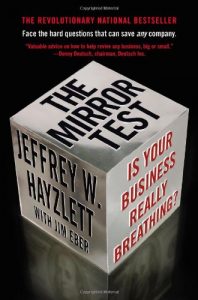
Well, I am just being myself. I’ve never tried to do more than just be myself. A lot of people think I will go out and try to evangelize, and I do some of that, but that’s the nature of who I am. It’s not because I’m trying to go out and gain followers or anything else. They don’t care and never have. It’s nice to look at the numbers, see that I got a million followers and doing this and that. One time I had somebody who was following myself and Richard Branson around for a week. They were following us on what we did and how we do it, and they were reporting on it. She was a reporter out of London or something, and she goes, “I don’t like following these two guys around.” So I tweeted back, “Well, quit following me.” I didn’t ask you to follow me. I didn’t ask you to write an article about us or him or me or the phenomenon using this from a branding perspective. You did that. I mean, I get it. I don’t give a rat’s rear end. And that’s what I try to do. I always try to do things the way I like to do them. So when you see me post on Facebook, when you see my post on Twitter or LinkedIn, it’s because I want to post it about and tell people what we do. I got a responsibility now with the network, representing the network a little bit more. It’s a huge shift that’s occurred in the last number of years. Right now, the shift is you got to use yourself as a brand. And I said this back in 2010. I said that in the Mirror Test, my very first book. “Sell you, sell the brand. Sell the brand, sell you.” And they’re not mutually exclusive. They’re one of the same.
What you were saying about this journalist that was following you and Richard Branson for a week reminded me of something that I learned from Bob Allen. Robert Allen wrote so many great books on real estate investing and so forth. He said, “When you’re speaking, like on stage, or via podcast, or whatever, you’re speaking to the smiley faces. The frowny faces in the audience aren’t there for you, and you aren’t there for them. Stop trying to win them over.”
I just speak. If I want to make anyone proud or anyone follow me would be my very close friends and certainly my family. Outside of that? Nahhh. If you like it, great. If you don’t like it, I don’t give a crap. That’s up to you. I don’t read reviews anymore. But I never really did. One time a guy panned my book, and I was so mad that this is one of the few times I looked at it. And like, “Why would he say that?” And then I said, “Well, what does he do for a living? What does he do?” So I found out that he wrote reviews on Amazon on vacuum cleaners. So literally, this guy sucked.
That’s funny.
So after that, I said, “I’m gonna stop. I’m never gonna look at that stuff again.” And I haven’t done it much for speeches. Five business Hall of Fames, one of those being the Speaking Hall of Fame, and somebody say, “What about your reviews?” And I said, “Every once in a while, I read them when I was younger. But now, as I’ve gotten older and more mature and more comfortable in what I do, I don’t care. It’s because I know what I do.” And I had a guy come up to me, I was in Los Angeles about two months ago for a board that I’m on, and some people found out and said, “Hey, can we meet up with this?” And I said, “Sure, I’ll be at this lobby bar. Let’s get together. My partner will be there. Stop in.” So this person stopped in, he brought a friend. And this friend is a speaking coach and expert for speakers. And I mentioned to you, as you know, I’m in the Speaking Hall of Fame, and I do hundreds and hundreds of speeches a year.

And that is impressive for our listeners who aren’t familiar with the National Speakers Association to be in their Hall of Fame is incredible. And congratulations on that.
Thank you very much. It’s like less than 100 people. Norman Vincent Peale. Ronald Reagan, Colin Powell, Art Linkletter. I mean, this is who you’re in there with—some pretty cool people. And Zig Ziglar and Brian Tracy, I can keep going on and some good people who have preceded me by far, and I’m in honor of who I’ve been able to be associated with within that same crowd. But this guy came up to me, and right off at the table, there’s like six of us at the table. We weren’t too well at practicing social distancing, but we were drinking scotch. So we were figuring that was killing it.
Is that your scientific hypothesis?
The frowny faces in the audience aren’t there for you. Stop trying to win them over.
I think bacon and pretty much scotch kills everything. So there you go. And I’ve already had it once. So anyway, he walked up to the table, stuck his hand out, shook my hand, I gave him a fist bump. And then he goes, “I like to talk to you about giving you some input on what you could do differently about your speaking.” And I go, “Not interested.” And he goes, “No, no, you don’t understand. This is what I do. And I love to give you this input.” I go, “You don’t understand. I don’t care. I don’t give a sh*t.” And finally, my partner said, “I don’t think you heard him. He said no.” It’s like, I know what I do. I know how I do it. Could it be done better? Yeah, without question. Could I do lots of things better? Yeah. Well, in some things, I’m more than happy to take your input. But where I’m at the top of my game doing what I’m doing now? Not really. I’m a Hall of Fame Speaker, dude. I’m in the top half of 1% of earning public in that particular profession. That’s like being a pro baseball player, or as a Fortune 100 officer, quite frankly, of which I’ve been as well, which is there are more people playing professional football than there are Fortune 100 officers, or Fortune 1000 officers, for that matter. And so when you’re at that level, and I know people will think this is arrogant, but you have to be fairly confident in what you do.
Yeah. And Dan Sullivan, who I’m a big fan of, says that the number one job of the entrepreneur or the business owner is to protect their confidence.
Oh, that’s a big one. Dan’s a smart guy, so is Robert Allen. Both smart people, love them, both inspirations. That’s a smart statement. Because if you start second-guessing yourself, you second guess yourself into failure pretty quick. I tell people a lot of times, Stephan, to walk with some swagger. Somebody once gave me a great compliment, Les Brown, who’s also in the Hall of Fame. They asked the speaker at a public meeting, and I’ve just happened to be sitting in the very far back row where I normally hang out if I’m in the room. And they said who would be your inspiration for speaking if you had to pick someone, and she stood up and said, “I would love to have the eloquence of Les Brown and the swagger of Jeffrey Hayzlett.” And I thought, “Oh, that’s pretty cool. That was a good compliment. I’ll take that.”
Not even God can help you if you don't choose what leads to what you want. Hearing the call is one thing. Choosing to answer it is another. Share on XThat’s amazing. That’s great. So let’s talk about these critics. And I just love what I’ve learned from Heroic Public Speaking and Michael Port. That is either you’re a performer, or you’re a critic. If you’re going to critique your performance, you’re going to critique other people’s performance. You are out of performer mode. And that’s not where you’re going to be creating stuff. So choose to stay in performance and leave the critiquing out of it. So that kind of a cardinal rule of participating in his Heroic Public Speaking program is no critiquing. You’re not a critic. So I love that. I’m also very supportive of what you’re saying. Only take in the critiques at a time that serves you and be like a policeman of your boundaries. If somebody wants to trample over those boundaries, no, you gotta stand tall as you did, and just say no.
You can adapt, you can change, you can do those things when it comes to a sales message or campaign along those lines, which you’ve done. But what you do is you go out and do it. Once you do it, and then look at the results. I learned many years ago, in public relations, there used to be an old formula called RACE – research, action, communication, evaluation. So you research your stuff, what you got to do, you put your action plan, you communicate it, and then you evaluate. So again, you perform, and then you’re in a reactive mode of “Okay, now, how was that? What did I need to do? How do I need to change it?” But if you’re doing it in the course of the performance, man, you are gonna sweat if you’re speaking. But even in the campaign, you’re going to be second-guessing yourself and those pieces. But what you want to do is not test my hypothesis, test the way I want to do it, then you go back and evaluate, then you change it again, you keep tweaking it and getting it to where you want. Whatever that message is, photographs, looks, feel, whatever, it’s all in the package.
Powerful statement there. What will be an example of a packaging that’s been amazing that you’ve seen, is not yours or client’s, but somebody else out there that has done a fabulous job?
RACE – research, action, communication, evaluation.
Right now, I’m watching all these companies repackage themselves into a safe environment and the new world. I mean, I think companies are doing a great job right now repackaging. Let’s take Papa John’s or Papa Murphy’s Pizza. Now they’re showing how people are wearing gloves and practicing safe things or Dominoes where you can pull up, and they’ll come out and open your trunk and put the pizzas right in your delivery. I think that’s been a great adaptation of repackaging themselves to show how they have adapted. And you see that across the board, and I get to give Popeyes and so many of these companies credit for doing that because it’s not easy to do that. Now you’re looking at an ad, or you are looking at something that is during COVID, pre-COVID, post-COVID, what’s gonna change? Because right away, you start putting those filters in, “Oh, that’s not cool.” “Oh, that’s not good if they do these kinds of things.” So I’m pretty impressed with a lot of companies and the way they’re doing it.
Yeah, even some high-end restaurants that are all about the experience and they have had to pivot completely. Some of them have done well with that.
And some not so well. It killed some iconic restaurants in New York City. I have a place in New York City as well. Blue Smoke closed down, the Jazz Standard closed down, 21 Club just closed down. Man, I hate to see those. Those were stalwart places. And then I’m thinking about some of these other places that I used to frequent all the time. All these different restaurants and I’m just worried about them. Pietro’s, I want to know how Billy and Dan and the team are doing at Pietro’s, and I don’t know their home number, so I can’t reach them. I checked on my local bar, Irish bar Scallywag’s, just to check in with them. I knew the waiters and the bartender, so I was emailing them, and they seem to be hanging in there. You just hope for the best with everybody and help them wherever you can. I help restaurants on a regular basis, wherever I can to help them as well. You want to spread it out a little bit. Let’s give them the business. Let’s do that.

Yeah. And give them shoutouts whenever possible, as well.
Yeah, or do other things that you can do. It’s like my wife who runs the books here said the other day, “Well, what about so and so? We don’t have to pay them yet.” I said, “Well, go ahead and pay them. They might need it. We got the cash. So go ahead. Let’s do that.” Because I would like somebody to do that for me, so those are the kind of things that you can do that I think are pretty cool.
You said earlier in that conversation that you give, and it’s part of the way that you engage, give, and reciprocity. So the three R’s.
I’ve just found out that the more you give, the more you get.
That’s business karma. That’s how the universe works.
Yeah, well, I need as much karma as I can get.
What are some ways that you have engaged this giving and reciprocity in your business and your personal life?
The more you give, the more you get.
I’ve never worked so hard for so little right now, for most of us, right? Because I’m going seven days a week, so I’m talking to everybody and anybody. And one is because I’ve always believed there’s a pony out there, right? So now the boundaries have been taken away from us where we used to go into an office. Well, now, we are in the office, right? So I’m just looking for things that I can continue to help people and get it up to a certain level of which it makes sense to continue to do. So just go out of my way to help people. And I was on the phone last Saturday with a company that does speaking for veterans. Right away, I said, “Oh, I know this rear admiral, I know this person, this person, and this person that were in the military, would you consider to have them as speakers in your speaker’s bureau?” And nobody asked me to do that. He didn’t ask for new speakers, and they didn’t ask to be represented. I just said, “Oh, wow, they would be great.” And then, of course, I spent an hour sending those people and connecting them. Well, I wasn’t asking for anything. Not to make me look better. It’s just the right thing to do. Will that come back to me? Yeah, it’ll come back. Sure it will.
But that’s not why you did it.
No. Because that’s what you should do. It’s like when I was younger, and I would also do this too. I mean, my daughter, we covered something the other day, which I’d send my kids over to go shovel the snow for sets and such. Because that’s what I did, that’s what my dad said to do when I was a kid. We go next door and do this for somebody else, or go mow their lawn because she can’t mow her lawn. She’s not feeling well. My daughter, the other day, shared a historical moment, what are great holiday traditions. And she remembered that during the Christmas holidays, the weather is always bad here in South Dakota. Typically during Christmas, it is snowy or whatever. And I would say. “Get your coat. Let’s go.” And they’ll go, “Where are we going?” I said, “We’re going to go pull people out of the ditch because we got a four-wheel drive, and we got chains. And we got this. And so we drive around the interstates and roads, and we’d pull people out of ditches because they want to get home for holidays.” And we could do that because we were home for a holiday—the stuff you do.
The game that we're in right now is a race. It's to get as digital as fast as you can if you want to survive and win. Share on XWhen you said the comment about the pony, it reminded me of the quote, of course, that you were referring to, but many of our listeners, I have a feeling, aren’t familiar with it. Do you want to share that?
I don’t even know what’s related to. I just know there’s something good in its meaning.
“With all this manure, there must be a pony in here somewhere.”
That’s right. I forgot. That’s where it comes from. Somewhere there’s a pony. Let’s go find the pony.
Some of the famous VCs are always talking about that. Like, “There’s got to be a pony in there somewhere,” in their investment portfolio.
I forgot it was related. See, I even forgot it was related to that. I just say that all the time.
Oh, funny stuff. Okay. So what let’s go back to the three R’s; relevant, reach, and reciprocity. How do our listeners incorporate the three R’s into their pivot strategy for 2021? Because COVID is not going away anytime soon.
With all this manure, there must be a pony in here somewhere.
The first thing is relevancy. In terms of relevancy, what is it that you do that is relevant for others that you can partner with? So that we’re aligned, our values are aligned, our markets are aligned, the targets that we’re trying to reach are aligned, the service levels reach the same service levels that we’d like to both jointly offer. So then it becomes about reach. So how do you connect with other people and partners to increase your reach right? Because at the end of the game, you got to get your stuff out there. So go find some tribes. Go find some groups that you can start to belong to or be a part of because that’s going to be critical. Now, you’ll say, “Well, geez, you’re a champ, you got 350,000 executives, you have millions that listened to your podcast, and tens of millions listen and watch your TV shows.” Yeah, sure we do. But if I add your 2000, 3000, or whatever it might be on LinkedIn and your Twitter following and so forth, and you’re helping me, that’s just that much more than I had. And so by adding that together, collectively, it’s a lot better. So then it becomes about reciprocity. Well, how can I help you? And usually, if you’ve called me and asked me, my first question is, “Hey, how can I help you?” When we get a phone call from somebody, that’s my thing. That’s it. “How can I help you? What is it you’re looking for? How are you trying to expand your business? What are you trying to get accomplished?”
And I want to understand that because then I can understand how I can help. And so then if I’m doing that for you, well, you should think about doing it for me. It’s like we have people come to the C-Suite Network, and I’m very clear about it with people that come to our events, especially on a Friday. We have these events called The Celebrations. Permission to pause so you can bring water to wine to whiskey. We don’t care. And we get together on Fridays, just like on Friday when we used to get together, and we’d head home after work, and we’d stop off to the local pub and maybe have a drink with someone and or get together do a high five or pat in the back because he had a great week, or maybe you needed a hug because it was kind of a crappy day. Well, we used to do that. Well, now we do that online. We’re doing that. We do this with our programming. You can come the first time. It’s like coming over for dinner, you’re my guest. The second time, still my guest. The third time, you should think about bringing a hot dish, maybe some rolls, right? Because now, you’re coming for more than just the meal. You’re starting to take advantage of things. And that’s how I describe it to people when we talk about our programs. “Hey, you’re here for the first time. Thank you. Here for the second time, Oh, we welcome you back. Are you here for more than the third time? I’m going to call you.” And I say it, “You need to bring a hot dish.” That means you need to join. You need to participate, and you need to jump in.

Yeah, give back.
Well, it’s like when you have your relatives come over, I won’t say which relative ’cause I don’t want to get back. But I had a relative whose spouse came, and it was like the third, fourth, time that they’d come for like Thanksgiving, for Christmas, for Easter because a lot of the things are held at our house. And then they ate dinner, and then they didn’t do anything. They wouldn’t sit down. Well, what are you talking about? Wait, I just got through cooking. Why aren’t you helping with dishes? Why aren’t you cleaning off the table? Why aren’t you putting away the folding chairs? That’s the way you should show up. You shouldn’t show up needy, you should come and bring strength to relationships, and that’s what the C-Suite Network is about. That’s what most business is about. That’s what most about life is about. It’s okay to be needy from time to time, but not needy every time.
My friend Amy Africa talks about how there are juice stealers, there are juicy people, and then there are non-juicy people. And this was a really powerful metaphor for me. Everyone has a peeled orange at the top of their forehead, and some oranges are juicy, some people are juicy, some are not, some are those tasteless, dried-up horrible oranges. And then there are people who are masquerading as juicy, but they’re not. They appear because they’re stealing everybody else’s juice, and they’re just looking for an opportunity to steal yours. So I’m always on the lookout for those people because they seem to gloom on to me. They love me. So just be aware.

We certainly get that in the network. And the more famous you become you get a lot of those kinds of people. I was reading about Tony Hsieh‘s death the other day and have known Tony for years. And he had a bunch of people around him, and they didn’t protect him. And you think back, and you looked at some of the signs and what could some of us have done to help. We weren’t close enough to be able to do that. But yeah, those are juice stealers; they suck your juice. And a lot of people did that with Tony. And I’ll say that publicly, I don’t have a problem with that. That’s what they did. Of course, you can’t like Amy Winehouse and others, you can’t protect all those people, but you can sure do your part. I hope somebody did.
It’s really sad. I thought very highly of Tony. He was personally involved in selecting me to help with the SEO of Zappos.com many years ago.
Oh, wow. I met Tony at a set of Celebrity Apprentice. I was a judge on Celebrity Apprentice, and Tony was there. Trump gave him hell. Tony was nervous, as you know, he is a very introverted person and a nervous person. And so he blew his line, you just got one line at the beginning of the show that you got to deliver, “Hey, I’m Jeffrey as the Chief Marketing Officer of Eastman Kodak. And you’re here to build a Kodak experience. We want you to…” and then you say whatever it is, right? And you got to get that line down. So one line, and you just got to nail that line. Well, Tony couldn’t nail that line. He flubbed it every time. And after the third or fourth time, Trump finally said, “You’re not very good at this.” He said that to him, like, “You son of a gun. Why would you do that?” And then Tony had to do it like 52 times, 52 takes in front of all those celebrities, all those people. That’s the opening of the show. Luckily, they were able to shoot that part of it, take those people’s side, and just put Tony there. That’s one of the things I said. I said, “Look, why don’t you guys take those people away? And just let Tony be Tony.” And I said, “Hey, Tony, just look at me. Say your line, just look at me. Say it, brother, you can get it.” And that’s what you do to help somebody. But it was cruel.
When you sell a brand, you sell you. Share on XIt was cruel.
It’s cruel. But you know, that’s the nature of that business. I mean, you know this. In the media, you gotta hit it, and you got to hit the mark. That’s like no different than I had somebody on my podcast, though it is a little different. I could have done it a different way. But there are times where I’ve had people on the podcast and when you ask a question, and they shake their head, like, “Dude, we’re on an audio show. You can’t shake your head. Okay? That doesn’t help me when people are trying to listen to you that you shook your head, yes.” And I’ve had those discussions with people and say, at the end of the interview, “So how did I do?” “Well, not too good because you shook your head.” The different ways of doing that.
Well, when we were talking about what Trump had said, like, the way he was taking Tony to task, that reminded me of our conversation here talking about the critic and the person who can just easily throw mud because they’re not the performer. They’re just the critic.
Right. At that point, he wasn’t. He’d already done his thing. By the way, Trump was good at it. He’s one of the best, quite frankly, and you could say whatever you want about US politics, whatever, but I’m just telling you in the TV world, it’s not easy when all those cameras are in front of you, and you’re on, and you’re live. In some cases, we shot the shows live, like the finale. That first season was live, and you’re in front of 14-15 million people, maybe 18 million. And we’re sitting on the set of the Saturday Night Live, and the Marvel’s are there. I mean, this is for Marvel’s, so you can’t mess your lives. Was I nervous now? Heck yeah. I had to go to the bathroom like 50 times before I got up on stage, but you got to nail it. It’s like suck it up, buttercup. That’s what you’re here for.
Your business should be based on values.
Yeah. So your most recent book is The Hero Factor. What can you say about heroes and that hero factor that would be most transformative for our listener right now?
Having values. Your business should be based on values. If your business is based on values, and if your team knows what those values are, you will gross more money than anyone in your industry. You will make more money than anyone in your industry, and you will have employees who are engaged with you. Greater than 50% of most employees are not engaged at their company level. You will have customers who love you and then adore you and are raving fans, and then on top of that, and you will have vendors who want to bend over backward for you. And in your community, you will be known as a hero business. That’s a pretty good thing as opposed to a bottom line or do-gooder, a wannabe, or maybe even as worse as an asshat kind of company, a zero-based value company. So yeah, I’d much rather be based on values and say we’re not going to do that because of this, or this, and everybody knows why. Now, that’s a pretty special thing. So that’s what that’s all about. It’s all about talking about taking sides. It’s all about taking stances on certain things and being represented to be diverse and to be inclusive, and to be a company that stands for something. That’s a pretty cool thing. In this world right now that we’re living in with all the politics, there are some good things that come out of it, we’re finding that we need to take stands, we’re finding we need to be accountable for what we say, how we say it, the way we do it. I think that’s a pretty cool thing.
Amazing. And it’s not just something that’s on a bumper sticker, or the wall in, let’s say, the break room or something, and not that people are probably going to the office right now. But it’s something that people understand in their gut or their hearts is the core of the mission or the point of having the business from the janitor through the entire company.
My job shouldn’t be to change you, my job should just be to understand you.
Yeah, it’s got to be core, and everybody’s got to understand it. That we all believe in it, and there’s nobody to take shortcuts; it’s not applied just to these people and not to these people. Nope, it’s everybody. And that’s a pretty cool thing. As we said, it’s not easy, and it’s very tough. That’s why I think we’re going through all the stuff we’re going through politically right now, is we’re finding back to our values again and what we stand for. And that’s why we’re not getting along with friends the way we used to because we’re picking sides. And now, what we have to learn is that we’re picking sides. Just because you pick the other side doesn’t make you bad. Because my job shouldn’t be to change you, my job should just be to understand you. That’s okay. And I think that’s all right. But most people don’t understand just because they don’t come over to your side doesn’t mean they’re bad people, or it’s a bad decision. It’s just a different way. Okay, cool. I think if you’d all look, we’re all still human beings, and we still try to do things the same way. We just have different ways of expressing it. So you might be a Biden fan, or you might be a Trump fan or whatever. That’s okay. That’s alright. Nothing wrong with that. Wave whatever flag or burn whatever flag. It’ll make a difference. It just makes me that much stronger makes you that much stronger. I’m okay with that.
The best principle is to always hope for the best for everybody and help whenever you can. Share on XFor me, it’s all about do you add value? Do you reveal light in the world? And if so, then we’re a fit. If not, then we’re not a fit. I used to take on big brands as clients just for the kind of ego effect of it, like the fame of it. So I’ve had Chanel and Sony and Zappos and Volvo and all these big-name clients, but now, I’m seeking out those kinds of clients that are revealing light in the world.
Right. And it gets back to the values. You have a choice in which you can spend your time. Somebody once said it’s on my website. It’s painted on our door in our office in South Dakota. We have an office in South Dakota. People say, “Why are you in South Dakota?” And I finally just said, “Because we can. Put that on the frickin website. Okay?” Meaning we can do whatever we want to because we can. So just do it. What’s stopping you? “Oh, our budget, our expertise.” No one’s stopping you from starting it. It doesn’t mean you have to be the best at it. Just get going.
Yeah. And there’s a couple related to “just get going,” it was one that’s, “Perfect is the enemy of done.” And here’s another Dan Sullivan quote: “Perfection has no place in times of peril.”
Perfect is the enemy of done.
Right. I say I’m building an airplane as I’m flying it. I’m doing that all the time. I don’t care. I’m not gonna crash it. I have enough experience to know I’m not going to crash the plane, gonna get a little bumpy. I’m going to run low on fuel from time to time, and when we do land, I’m going to change out some things, and we’re going to take off again. That’s over-refueled. I do that all the time. And a lot of other people like, “Oh, we gotta do this perfect.” Or “This has got to be done.” Or “This has got to change.” I always call that “TYCO.” I say TYCO, and I don’t know if you know what that means. It’s “Thank you, Captain Obvious.”
That’s good. I like that.
I just yell, “TYCO!” Our team does that whenever somebody does raise some point that we all know, we just say TYCO. “No crap. Seriously?” “Yes, of course. Thank you very much.”
Blinding flash of the obvious. That’s another one.

I mean, nobody wakes up in the morning and says, “I can’t wait to be stupid.” I mean, there are a few people. But by and large, nobody’s trying to screw it up. No one’s trying to do a bad job. No one intends to misspell a word in the letter. Man, I don’t think so. I’m just typing so fast, and there is that autocorrect. There are some bad ones, by the way. I remember once I was on my television show on Bloomberg, and my head of social media, this woman who now is a VP of marketing in a very major company. And I remember she said something like, “We were going to do this, this and this,” and I wrote, “Go for it.” And it retyped, “Go tits.”
Oh no.
Not cool, man. And she knew that wasn’t my intent. And so she wrote back there, “Whoa, there cowboy.” And I thought, “There’s a gal with a good sense of humor.” And she knew my intent wasn’t bad. So most people don’t try to screw up and make mistakes and do those kinds of things.
Yeah. And you didn’t send that on her social account or anything?
Oh, gosh, no. No, that was a text back to her because we were deciding what to do about billboards and some other stuff for the TV show. She was running the marketing and social and everything else. She was my personal marketing person inside of Bloomberg at the time.
That’s funny. Oh, what a good way to end this episode.
There you go. Yeah, go for it. Type that in and make a mistake on your text, people. There you go.
Oh, funny. Okay. So if our listeners want to learn more from you, and there’s so much to learn, where would be the best place for him or her to go?
Just go to anything on social media with my name on it for Jeffrey Hayzlett, but also C-Suite Network. And one of the best places for people to get involved is just to come to the events. Just come, go to C-SuiteNetwork.com, you can go to C-Suite Radio, C-Suite TV, C-Suite Book Club, C-Suite Loan, C-Suite Supplies, you can find us everywhere. But if you go to C-Suite Network and go to events, just come to one of our events. We’d love to have you.
Awesome. Thank you, Jeffrey. This is fun and illuminating. You’re just so full of wisdom. It’s awesome.
Thank you. Appreciate it. It’s fun. This is a fun kind of podcast to do. We just talk. It’s great. I like that. A lot of people come with so many agendas. I just like a good conversation.
Me too. Awesome. Thank you, Jeffrey.
Pleasure.

